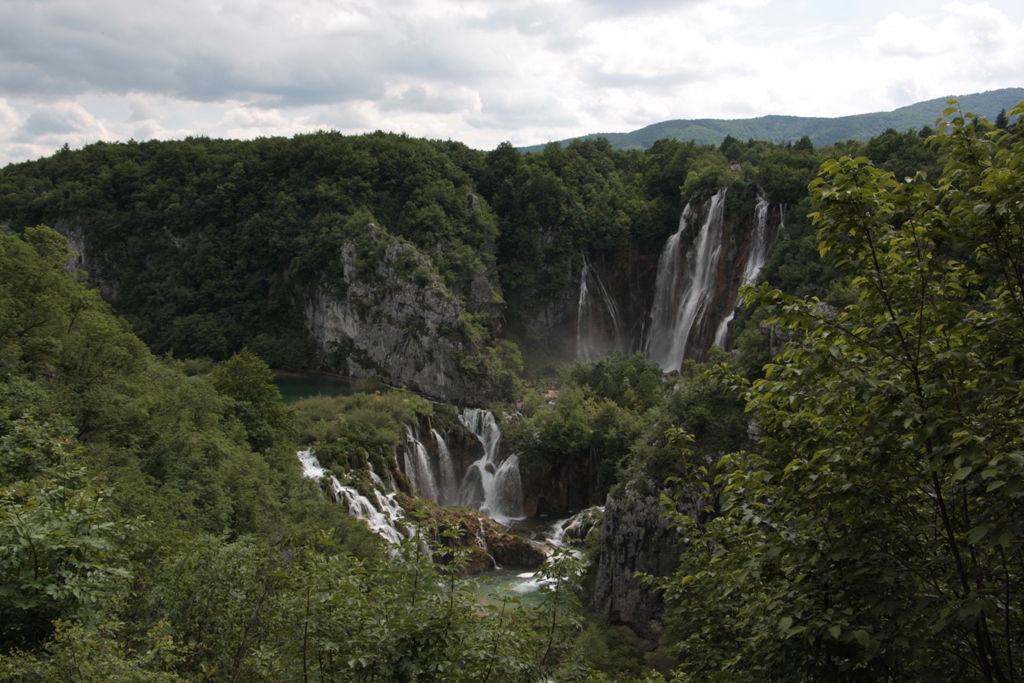Lake Matka and Treska Canyon
Posted May 23, 2015 by twjSkopje
North Macedonia
May 20, 2015
Lake Matka lies only about a forty minute drive outside Skopje.
Formed by a hydroelectric dam, the lake sits below the steep sides of the Treska Canyon. It’s an idyllic spot for a moderate hike along a narrow path above the tranquil lake.
After my hike, I returned to the outdoor restaurant that overlooks the lake. I lingered over a lunch of delicious fish soup with salmon and vegetables, and a green salad with sautéed mushrooms and grated cheese.
Is there a better way to spend a day?

